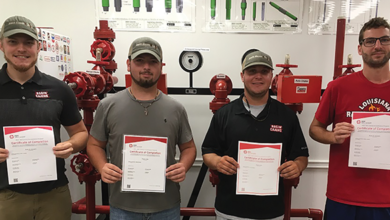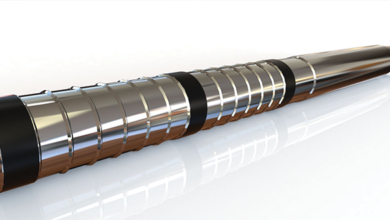Wirelines
Revisions to BSEE Offshore Safety Rule Enhance Offshore Oil and Gas Safety, Operations
On 28 September, the US Bureau of Safety and Environmental Enforcement (BSEE) announced revisions to the Oil and Gas and Sulphur Operations on the Outer Continental Shelf – Oil and Gas Production Safety Systems Rule. The updated regulations revise or remove certain regulatory provisions that create unnecessary burdens on stakeholders and clarify other provisions, while ensuring safety and environmental protection.
In response to the announcement, IADC President Jason McFarland issued the following statement: “IADC is pleased to see the results of the exacting approach taken by BSEE to enhance its production safety regulations. Far from making industry operations less safe, as detractors have alleged, the judicious assessment of all 484 provisions contained within the original 2016 rule will afford stakeholders an opportunity to effectively apply these revised requirements as they were originally intended. BSEE Director Scott Angelle has stated that the BSEE employed a ‘thoughtful and laser-like focus’ throughout its consideration of this rule, an effort that IADC fully supports and appreciates.”
US Coast Guard Withdraws Decades-Old Offshore Proposed Regulation
In the 19 October US Federal Register, the US Coast Guard made public its withdrawal of the “Outer Continental Shelf Activities” proposed rule, which was initially published in 1999. IADC representatives had long advocated for reconsideration of the proposed regulations.
Upon the announcement that they would be withdrawn, IADC President Jason McFarland said, “The withdrawal of this proposed rule by the US Coast Guard is long overdue. After sitting on the shelf for nearly 20 years, the provisions contained in the proposed rule have long ago been rendered obsolete by an industry that prides itself on embracing technological advances. At IADC, we have advocated for the Coast Guard to withdraw their proposal in order to facilitate an open dialogue regarding regulations that reflect the current state of the industry. We would like to thank the Coast Guard, and Rear Admiral J.P. Nadeau in particular, for their attention to this topic. We look forward to working with the Coast Guard on a future rule that addresses the health and safety on offshore vessels and facilities engaged in the development and production of our nation’s vast energy resources.”
UK Oil & Gas Releases Economic Report 2018
UK Oil & Gas recently released its Economic Report 2018, which highlights the positive indicators of an offshore industry beginning to recover and the encouraging effects on the UK sector.
The report expresses cautious optimism as persistent corporate and regulatory pressures influence prevailing market conditions.
New Trade Agreement a Win for Business
On 1 October, US President Donald Trump announced a new trade deal to replace NAFTA. The United States, Mexico, Canada Agreement (USMCA) has positive implications for the oil and gas industry. In response, IADC President Jason McFarland said, “IADC is pleased to see the advancement of a new trade agreement with all three countries at the table. A trade agreement that promotes the swift movement of equipment and personnel across the borders in North America is important to IADC’s membership, and we will continue to monitor it as it moves toward a Congressional vote.”
BLM Finalizes Changes to Waste Prevention Rule
The US Bureau of Land Management (BLM) recently announced final changes to the Methane and Waste Prevention Rule. The new rule reestablishes long-standing requirements and eliminates duplicative regulations that hurt states and Tribes.
In response to the new rule, Jason McFarland, IADC President said, “Since the rule was first issued in 2016, IADC has contended that the regulation would have the unintended impact of fewer jobs, higher costs for consumers, less energy security and less federal revenue for the United States. Interior’s announcement is gratifying in that industry concerns have been heard and the resulting regulation encourages energy development while still remaining vigilant about protecting the environment from unnecessary methane emissions.”
He went on to say, “The reality is that energy companies always prefer to capture valuable natural gas than flare it off, and since 2005, emissions have actually declined by 38%, even as production has boomed. This speaks to the commitment by our industry to continuously improve the advancement of environmentally sound operations.”
Australia’s National Offshore Petroleum Safety and Environmental Management Authority (NOPSEMA) recently released its Annual Offshore Performance Report for 2017. The report contains data gathered through NOPSEMA’s regulatory functions, covering occupational health and safety, well (structural) integrity and environmental management of offshore petroleum facilities and activities in Commonwealth waters.
Safety performance for 2017 was encouraging as no fatalities were recorded for the fifth straight year, despite a 31% increase in manhours worked compared with 2016 figures. A total of 291 dangerous occurrences were recorded for the year – the lowest in a decade, although the OCS experienced 29 uncontrolled hydrocarbon releases in 2017, the second consecutive year of increased incidences.





